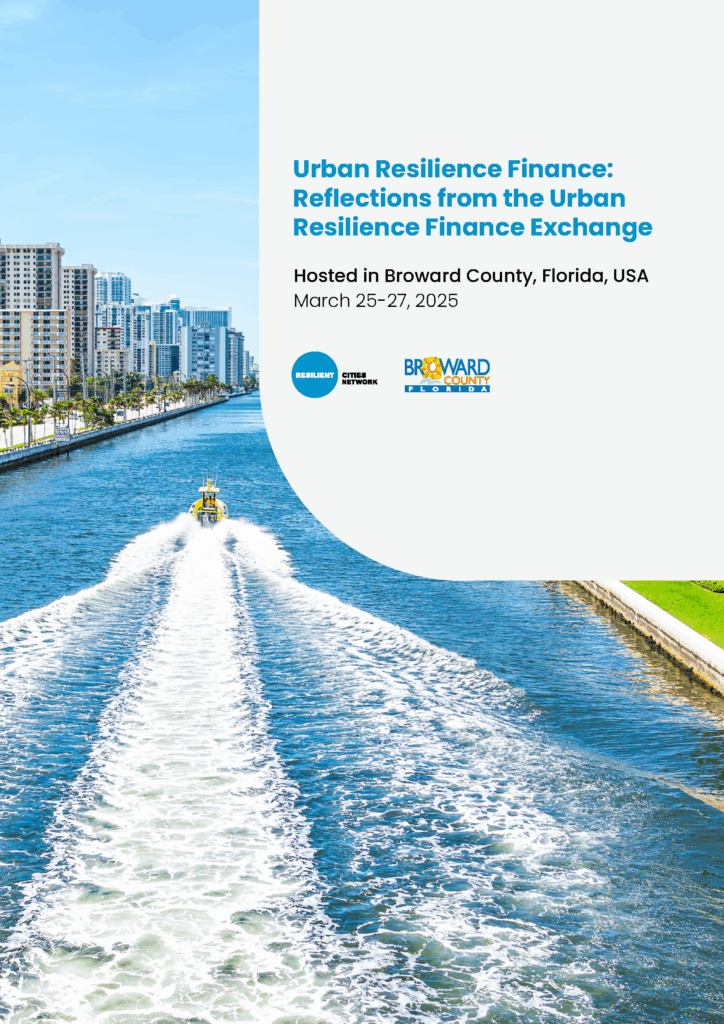As urban resilience evolves and integrates different city functions, cities are moving from planning toward action. The capacity to fund and finance projects is critical for the delivery of projects at the speed and scale required. This suite of skillsets, operational approaches and data-driven analysis constitute the totality of the Portfolio Approach, a concept that has developed at the Network and was further developed and refined at the Resilience Finance Knowledge Exchange in Broward County, Florida in March 2025.
This Exchange cities together during brought cities together during times of drastic changes to the federal funding landscape. As Resilient Cities Network continues to engage around this topic, it is the innovation, grit and exchange of our network cities that will undoubtedly come through as cities work to implement adaption projects at-scale.

Key objectives of the Resilience Finance Exchange:
- Explore Capital Planning and Resilience Finance Strategies: Identify and document portfolio management approaches, implementation strategies, enablers, and challenges in scaling investments.
- Engage with Finance and Private Sector Partners: Gain insights into the current state of resilience finance, including tools, key considerations, challenges, commitments, and ongoing research. Examine emerging themes and tools for building portfolio approaches.
- Advance the Resilience Finance Agenda Toward COP30: Further mature the Resilience Finance Agenda and shape the pathway toward COP30, driving forward collaborative action and scaling impact.
About Resilient Cities Network
Resilient Cities Network is the world’s leading urban resilience network bringing together global knowledge, practice, partnerships, and funding to empower its members to build safe and equitable cities for all. Its unique city-led approach ensures cities drive the agenda to benefit the communities they serve. At work in more than 100 cities worldwide, the Resilient Cities Network supports on-the-ground projects and solutions to build climate resilient, circular and equitable cities while also facilitating connections and information-sharing between communities and local leaders.
